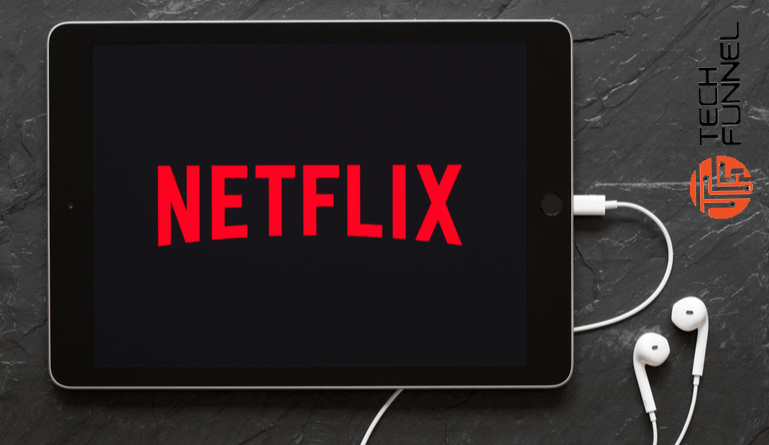Guest Contribution by Mahendra Bajiya
In an announcement at the end of February 2016, Netflix stressed that it would begin to deny users who are using VPN access to the content of their service such a practice. More precisely, users in different regions and countries, especially in Europe, don’t have access to the same content as users in the United States or neighboring regions/countries.
That’s why this part of Netflix’s audience uses VPN access to the service whose settings allow them to log in as users from another country and unlock content that isn’t initially available in their area. Doing so, they violate Netflix’s Terms of Use and because of that, but also because of copyright reasons, Netflix terminates those users to access restricted content.
Prior to this announcement, Netflix, its partners, and users had a “tacit agreement” regarding the use of VPN capabilities because not all content is available worldwide. Until recently, the same case was regarding this service in general. Unfortunately for users, this “tacit agreement” has changed, which has been followed by online petitions, negative comments, and resentment from subscribers around the world.
Users Raised a Lot of Noise Against Blocking of VPNs
Users who have been blocked from accessing Netflix via VPN have raised a lot of noise on social media, especially on Twitter and Facebook, threatening that they will cancel their subscriptions if their access to content continues to be blocked. As they explained, they are annoyed by Netflix’s policy of not showing them what content they want to watch, with some saying that as much as 90 percent of everything they watch belongs to inaccessible content that’s locally blocked.
Let’s clarify – these are users that are legally logged in, who each month give Netflix between $ 8.99 and $ 15.99 to subscribe, but “cheat” the system a little using a VPN to unlock content they can’t see in their region/country. The account of these users isn’t terminated, they are only forbidden from their previous VPN access. First countries whose users felt this new Netflix’s policy on their skin were Australia, followed by Germany, and so on.
Those who try to trick Netflix’s geo-blocking using VPN will see the following error message clearly saying they won’tbe able to watch anything until they turn off their VPN: “Whoops, something went wrong… Streaming error. You seem to be using an unblocker or proxy. Please turn off any of these services and try again.”
What Made Netflix Sharpen Its Streaming Policy?
Never has this US company and its partners been happy with VPN solutions, regardless of the fact that users were paying for the service. However, partners still have to pay a certain amount of money to be available in some countries and have benefited from it, just like Netflix, which means that they lose some of their revenue if someone from Germany “pretends” to be in the United States and thus, consumes content inaccessible in Germany.
Understandably, all three sides to this storyhave valid arguments. Specifically, Netflix can’t display content in a country that’s not licensed to do so, meaning that the content owners don’t receive some of the money they would receive in the case of licenses. Also, users are angry because they pay the same amount of money as American subscribers but don’t have the ability to view content that exists in the United States. Of course, they think something like that is unfair.
We can explain this issue from a different angle. The cause of the problem is that Netflix has a different range in every country. Before it allows you to stream content, the licensed rights for it must be purchased. However, these must be purchased individually for each country. For example, Netflix has the American licensed rights for some movies and series but, let’s say, France doesn’t have the rights. American users can see the content, French users can’t.
Geo-blocking is intended to prevent viewers from playing movies and series that they shouldn’t be able to play. If you log in to Netflix, your IP address will be used to identify which country you’re in. Then, accordingly, you’ll be shown the range for this country. So it’s often not possible to see a certain range from a certain country in another country without an aid, such as a VPN.
What VPN does is helping you connect to different servers – including ones from the USA. This server is then virtually switched between you and Netflix who will only see that you’ve connected to the Internet via an American server. As a result, it assumes that you’re in the United States and that you can access the American range. So, a VPN is a good and legal way to see the US content.
Is Netflix Acting Against Itself?
Let’s get back to talking about unsatisfied users. In addition to all written above, criticism has also risen about the lack of subtitles in native languages for those who have a Netflix service in their home country. So, they are misled about that even though they pay for the service just like the Americans. All in all, it’s a very complicated and unwanted episode for Netflix because two months before they started blockingVPNs, they became available in 190 countries and began bragging about managing to handle the issue of piracy. And then this, what we’re talking about in the article, happened…
Indeed, Netflix offers a lot of older movies, which those more versed in movies and series have watched through “alternative ways” a long time ago, especially in countries where piracy isn’t punishable or laws regarding this matter are loose, and after a month of the trial period, they simply gave up on renewing their subscriptions. Not only that, but subtitles into the languages of these countries (mainly third world countries) are practically inaccessible and the older population isn’t interested in the service because these countries have a lower percentage of English speakers.
It may take some time for Netflix to re-organize, but until that happens, it will lose more than it will get with the decision to block the VPN possibility.
***
Mahendra Bajiya is a digital marketer and founder at MIGuestPost.com, a digital marketing agency specializing in advertising and creating link building and content strategies. He writes blogs and guest posts about various topics. Connect on LinkedIn.





